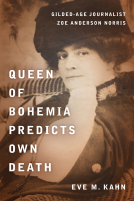
Red Cavalry
by Isaac Babel
This title was previously available on NetGalley and is now archived.
Send NetGalley books directly to your Kindle or Kindle app
1
To read on a Kindle or Kindle app, please add kindle@netgalley.com as an approved email address to receive files in your Amazon account. Click here for step-by-step instructions.
2
Also find your Kindle email address within your Amazon account, and enter it here.
Pub Date May 12 2015 | Archive Date Mar 23 2015
Pushkin Press | Pushkin Collection
Description
Pushkin Collection editions feature a spare, elegant series style and superior, durable components. The Collection is typeset in Monotype Baskerville, litho-printed on Munken Premium White Paper and notch-bound by the independently owned printer TJ International in Padstow. The covers, with French flaps, are printed on Colorplan Pristine White Paper. Both paper and cover board are acid-free and Forest Stewardship Council (FSC) certified.
Advance Praise
Marvelously subtle, tragic, and often comic. -- James Wood, The New Republic
Marvelously subtle, tragic, and often comic. -- James Wood, The New Republic
Available Editions
| EDITION | Other Format |
| ISBN | 9781782270935 |
| PRICE | $18.00 (USD) |
Average rating from 16 members
Featured Reviews
Babel is another case of a literature genius that I do not like so much to read, mostly because this little short stories, for example, took place during the war and are sad and full of violence and death but still in his description there is beauty and poetry.
Babel é un altro di quei casi di geni della letteratura che peró non mi piacciono tanto, nel suo caso principlmente perché le sue storie, come queste per esempio, sono tutte ambientate durante la guerra e sono tristi e piene di violenza e morte, ma nonostante questo nelle sue descrizioni c'é anche una bellezza nascosta ed una certa poesia.
THANKS TO NETGALLEY AND STEERFORTH PRESS FOR THE PREVIEW!
 Reviewer 230978
Reviewer 230978
Red Cavalry by Isaac Babel is an account of The Polish-Soviet War of 1920, taken from Babel's own diary as he served in the Russian Army during the war. The book is a series of short stories about the strange and terrible face of war that shocked the public and was condemned by those in power at the time. I found the stories to by very lyrical in their depiction of the brutalities of war and almost poetic in their form. Sometimes it is difficult to understand the obscure meanings and sentiments of the participants. Luckily for Babel, he had equally powerful friends that kept him from a certain execution when his stories were released. You don't really find out that much about the actual war, but are given a close look at the tragic consequences affecting the populace and the soldiers alike. From a history standpoint, I've never read anything like it. A remarkable book
 Mandy J, Reviewer
Mandy J, Reviewer
Isaac Babel’s collection of short stories entitled Red Cavalry was published in 1926 and is a classic of Soviet literature. It deals with incidents of the Civil War and the 1920 campaign against Poland led by Cossacks under Budyonny’s command. It focuses on the conflict between the intellectual protagonist and the violent soldiers and the contradiction between the actions of the ruthless revolutionary soldiers and their idealistic, although usually inarticulate aspirations. Babel doesn’t flinch from confronting man’s inhumanity to his fellow man, and the casual brutality where killing becomes just a routine every day activity. There’s some graphic violence in these tales, but it is always offset but flashes of lyricism and poeticism and a constant awareness of the beauty of life. Often shocking, sometimes tender, this newly translated collection is essential reading for anyone interested in Soviet literature, or indeed for anyone interested in the literature of war.
 zeb k, Reviewer
zeb k, Reviewer
During the Polish-Soviet War of 1920-1921, Isaac Babel was attached to the Red Army Cavalry that fought in Southern Poland. Most of this area had been part of the Russian Empire for centuries and was well known to him. This was also part of the ‘infamous’ Pale of Russia.
The Pale of Russia was the eastern part of the Polish-Lithuanian Commonwealth before it was partitioned between Austria, Prussia and Russia at the end of the eighteenth century. This was the area that Jews were ghetto-ized into. Most of it was small towns (schtetls) that were little more than a handful of huts and dirt roads.
Babel wrote about the good and the bad of the Soviet Army as they tramped through this area fighting the Polish Army and the population. The effect of the war on both the armies and the people are what he wrote about in the diary, he kept during the war.
Babel can be both satiric and ironic in his depiction of the violence or war and can be blasé and matter of fact about murder and mayhem. He shows how was can make some men sinners and others saints, and how killing can become mundane.
More than anything else, Babel’s narrator deals with the change in status of the Russian-Jewish intelligentsia and how theory changes when confronted with reality. For most socialist intellectuals, the theory of ‘all power to the Soviets’, had been an idea had now become the norm. As Babel found out, effectuating an ideal is much harder than talking about it.
Written in a very Russian style of fiction mixed with fact Babel established himself as a new voice in the new Russia. He didn’t ‘clean’ up the language of the troops any more than the horrors they saw or committed. It could easily be American troops in Iraq.
Zeb Kantrowitz zworstblog.blogspot.c
 Annie S, Librarian
Annie S, Librarian
Last January, I read The Day of the Oprichnik by Vladimir Sorokin and was horrified by the rapid emotional cycling of the main character. The same man who, in the morning, could commit rapes and beatings and executions would be the same man who wept at the beauty of an opera. What I didn't know at the time was this kind of character is part of a Russian character. I saw several of his type in Isaac Babel's short story collection, Red Cavalry, soon to be reissued by Pushkin Press.
Issac Babel's stories are drawn from life. As a young man trying to become a writer, Babel was assigned to the First Cavalry Army in 1920. Red Cavalry began as Babel's war diary as he fought with the First Cavalry in the Polish-Soviet War—a tidy name for a conflict in which every faction is fighting every other faction and the civilian population, as well. The man in the cavalry mourn their slaughtered horses and weep when they are particularly moved by a song, then turn around and commit mass murder or atrocities on the civilians. The stories in Red Cavalry document a world gone mad.
According to the translator's note at the beginning of this reissue of Red Cavalry, the collection is considered a masterpiece of Russian literature. Wikipedia quotes the inimitable Jorge Luis Borges on the effect of one of the stories, "The music of its style contrasts with the almost ineffable brutality of certain scenes. One of the stories, —"Salt"—enjoys a glory seemingly reserved for poems and rarely attained by prose: many people know it by heart" (Jorge Luis Borges, Selected Nonfictions, page 164.) The translator, Boris Dralyuk, also comments on the "music" in Babel's stories. It is a rough music. The stories—vignettes, really—flow into each other. Characters reappear in later stories, lending some coherence to the chaos.
Because the stories tumble into one another, it's hard to pick any standouts. Many of the story titles were omitted from my advanced reader copy, so I actually read the book as one piece. (I'm not sure which method is more effective, to be honest.) As I read, I had bookmarks in the historical notes at the end so that I could understand the brief references to various commanders, heroes, and villains; the flashes of Polish and Yiddish; and the pertinent history of post-World War I civil war wracked Russia, Ukraine, and Poland.
I suspect that Babel's stories and vignettes are deliberately confusing because the events themselves were so confusing. Instead of putting political speeches into his characters' mouths, the combatants and civilians don't seem to know what anyone is fighting for. To an outside observer, it's sheer anarchy. (Possibly to an inside observer, too.) In the past, I've read Mikhail Bulgakov's The White Guard, which is set at roughly the same time, but Red Cavalry is only my second exposure to contemporary Russian Civil War literature. Because Red Cavalry was written as the author killed and avoided being killed, it feels truer to the time than The White Guard (serialized in 1925, but not fully published until 1966). That is to say, it feels as true as a war story can feel to anyone who wasn't there.
I received a copy of this collection from NetGalley, in exchange for an honest review. It will be published 12 May 2015.
 Educator 144982
Educator 144982
Everyone should read Babel--his writing is an education in the crafting of fiction.
 Robert O, Educator
Robert O, Educator
Red Cavalry by Isaac Babel Pushkin Press
Review by Scott Laughlin
If you want to write a better short story, read Isaac Babel’s Red Cavalry. It’s that simple. Jesus’ Son? Johnson readily admits he ripped off Babel. George Saunders claims Babel freed him. Even Hemingway might concede In Our Time contains Babel’s stamp. Like all writers of his generation, Babel witnessed major historical events: the Russian Revolution, World War I, and the rise and dominance of Stalin, who would later order Babel’s execution. Sent as a journalist to the Polish-Soviet War, he reported on the Soviet Union’s campaign to occupy Poland. His diary of the time was the germ for the stories in Red Cavalry. Babel brought a unique perspective as a bookish Ukrainian Jew to the brute force of Soviet soldiering. This encounter provided his subject matter, but like all great autobiographical writers, he transcends his own life. What is so stunning about Babel’s writing is not what, but how.
He’s one of the first twentieth-century writers to stitch the romantic and the real. This passage from the opening story, “Crossing the Zbrucz,” is a prime example: “Fields of scarlet poppies blossom around us, a midday breeze plays in the yellowing rye, and virgin buckwheat rises on the horizon like the wall of a distant monastery. The quiet Volyn bends. Volyn recedes from us into the pearly mist of birch groves and creeps into the flowery hills, its feeble arms getting tangled in thickets of hops. An orange sun rolls across the sky like a severed head, a gentle light glitters in the ravines of clouds, and the banners of sunset flutter over our heads. The scent of yesterday’s blood and dead horses seeps into the evening coolness.” Babel lingers on the beauty of the terrain, the natural world, but just as the reader might grow bored of his descriptions, no matter how rich, Babel hits us with that “severed head” and “yesterday’s blood.” Tucked into the searing natural beauty of the world is the reality of mankind’s perennial violence. The narrator enters a squalid room, orders the people to clean up, and after he falls asleep, a woman awakens him: “‘Pan… You’re screaming in your sleep, thrashing around. I’ll make your bed in the other corner. Because you’re shoving my papa.’” He sees papa with his “gullet ripped out, his face is hacked in two.” She says, “The Poles were slashing him, and he kept saying, ‘Kill me in the backyard so my daughter doesn’t see me die’… And now you tell me… you tell me where else in this whole world you’ll find a father like my father…’” End of story. Notice how Babel doesn't enter the narrator’s consciousness. We see our cocksure narrator become witness to both man’s brutality and altruism in a moment, an experience that will change him forever—or so the reader is left to conclude.
“Crossing the Zbrucz” is three pages. A quick glance at the page count in the table of contents in the excellent new edition by Pushkin Press (Is anyone putting out more satisfying books to hold in one’s hands than Pushkin these days?) will show that Babel’s longest story is nine pages. Most are five. Cutting and concision remain hallmarks of Babel’s style. Tolstoy put Napoleon on the hilltop in his thousand-plus pages, but Babel doesn’t concern himself with capturing the whole. He strikes at the mud, the hamlets, and shtetls, and he returns with beautiful miniatures. Think less the slithering bodies of Rodin, more the quiet geometry of Brancusi.
Still, Babel has the consciousness of the cosmos. An awareness of the universe following its course allows Babel to comment on the meaninglessness of human endeavor. The violent acts we commit with so much self-importance are so many grains of sand tossed to the wind. The result is a sort of cosmic joke. “My First Goose,” perhaps the most famous story in the collection, is not about owning a first goose but about killing one. The narrator, accused of being too intellectual, steps on a goose’s head to gain the acceptance of a group of Cossack soldiers. As this folly plays out, Babel writes, “The moon hung over the yard like a cheap earring.” Later, “Evening enveloped me in the bracing dampness of its twilight sheets—evening laid its palms on my burning forehead.” And the penultimate line: “There were six of us, huddling together for warmth, our legs tangled, under a roof full of holes that let in the stars.” The universe is by turns cheapened by our acts, but there’s also indifference and compassion. The ability to invoke the grander scheme amidst of dramatic action places Babel at Shakespeare’s table.
As was typical in Stalin’s Soviet Union, Babel went the way of the emerging violent world he charted early on. Cheka goons came knocking on his door with their leather gloves, wearing their leather coats, and carrying their Nagent revolvers, a typical visit for so many writers and artists in the late Twenties and Thirties. They removed, tortured, and then shot Babel after a twenty-minute mock trial (these details only came to light in the Nineties). They stole Babel’s life, his future writing, but they also took what was written: every shred of his correspondence, diaries, and manuscripts. Nothing has surfaced. What brilliance existed in those pages? Writers visiting Babel saw mounds of paper stacked on his desk. Babel joked—he was a notorious joker—“This is what I’ve cut.” More likely, it was what he hadn’t published. So often when faced with the brutality of the twentieth century, we must console ourselves: At least we have the masterpiece that is Red Cavalry.
Readers who liked this book also liked:
Rachel Joyce
Historical Fiction, Literary Fiction, Women's Fiction
L.M Montgomery
Children's Fiction, Comics, Graphic Novels, Manga, Teens & YA


















